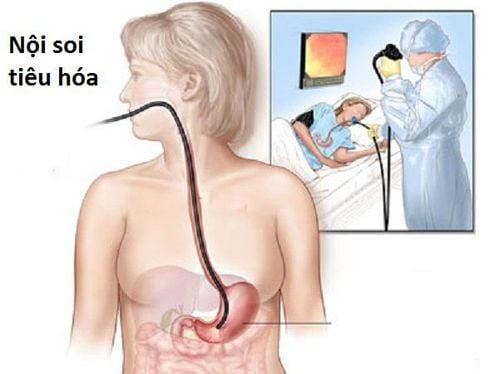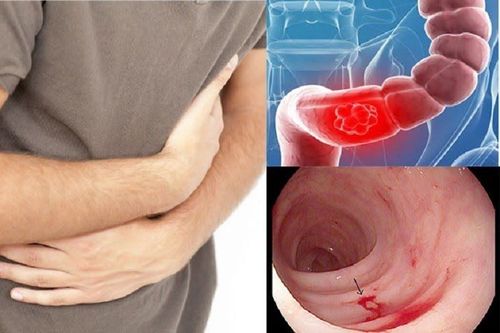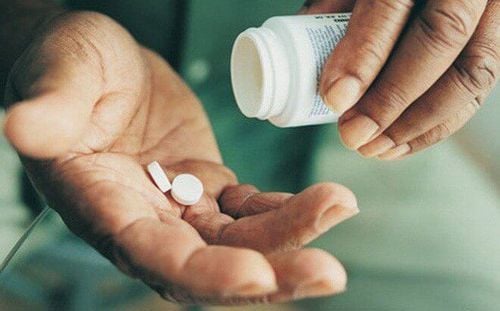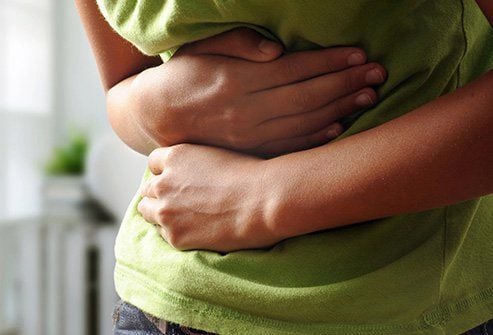This is an automatically translated article.
The article is professionally consulted by Doctor Vo Thi Thuy Trang, Department of Medical Examination & Internal Medicine - Vinmec International Hospital Da Nang.Hemorrhagic ulcerative colitis is the most common gastrointestinal disease. The disease causes diffuse damage to the mucosa and submucosa, located mainly in the rectum and gradually decreasing to the colon.
Because ulcerative colitis has the same symptoms as other common diseases, patients are often subjectively hospitalized late, making treatment difficult. Therefore, early detection and timely treatment are essential to avoid dangerous complications.
Ulcerative colitis is a chronic inflammatory disease, autoimmune nature, causing ulceration and bleeding of the colon, diffuse damage to the mucosa and submucosa, mainly located in the rectum and decreased gradually to the right colon.
1. Causes of ulcerative colitis
The colon is the last part of the digestive tract, where stool is formed and stored before being excreted from the body. The colon includes: the cecum is the segment connecting the end of the small intestine, followed by the ascending colon (right colon), hepatic flexure, transverse colon, splenic flexure, and descending colon (left colon). , sigmoid colon, rectum, and finally anus.The cause of ulcerative colitis is still unknown, but the disease is related to the immune response process. Bleeding ulcerative colitis and Crohn's disease are collectively known as Inflammatory Bowel Disease (IBD). The disease may initially be confined to the rectum, then gradually spread inward, affecting the entire colon, sometimes even spreading to part of the terminal small intestine.
Men and women can get the disease equally, and it is common in people between the ages of 15-30 and 60-70 years old.
2. How to treat ulcerative colitis bleeding?
2.1 Principles of treatment
For treatment-nave cases: Initiate 1 drug, assess response based on clinical symptoms after 10-15 days; For those who have been or are being treated with a severe exacerbation: Restart treatment with 2 drugs being treated and combine 1 other drug; In case of being treated and stopping treatment for a long time: Initiating treatment as in the case of no treatment, it is advisable to start treatment with another drug; In mild cases, minimal damage to the rectum and sigmoid colon should be combined with local treatment drugs, suppositories and enemas; Treatment consists of aggressive treatment and maintenance therapy.2.2 Medical treatment

2.3 Nutrition and symptomatic treatment
Mild or moderate: Should choose soft foods, temporarily limit fiber; Severity: Complete fasting; Intravenous nutrition with total protein, fatty acid solution, sugar, ensuring 2500 Kcal/day; Supplement iron, folic acid 1mg/day if taking 5-ASA drug for a long time; Replenish electrolyte water. Loose stools: Use mucosal coating drugs; Abdominal pain: Take spasmolytics.2.4 Surgical treatment
Colectomy or total colectomy is indicated when:Colonic perforation; Toxic dilatation of the colon; Massive bleeding for which medical treatment fails; Carcinoma or severe metaplasia.
3. Note to the patient

Need to pay attention to the daily diet. Patients should eat soft foods, low in fiber such as pasty rice, porridge, lean meat, fish, soy milk, note to avoid eating raw vegetables, corn...
Limiting excessive stress makes the disease worse , should relax, do not use stimulants, drink enough water. These are also measures to reduce the risk of disease for healthy people.
Up to now, there is no cure for ulcerative colitis, but treatment only helps in remission. Therefore, in addition to the treatment prescribed by the doctor, the patient needs to follow a good diet for the digestive system, avoid stress and have regular health check-ups. As soon as symptoms appear, it is necessary to seek medical attention early and treat promptly when the lesions have not spread.
Specialist Doctor I Vo Thi Thuy Trang is trained in gastroenterology, hepatobiliary tract and gastrointestinal endoscopy; continuously updated and received advanced endoscopic training from professors and endoscopy experts from Switzerland and Japan; participated in many domestic and international gastroenterology and endoscopy conferences.
With nearly 20 years of working at Da Nang General Hospital in the field of gastrointestinal endoscopy - hepatobiliary disease, every year, Doctor Vo Thi Thuy Trang participates in endoscopy more than 1500 cases including: endoscopic diagnosis of diseases stomach, colon such as: detecting inflammation, ulcers, polyps, cancer, finding HP bacteria, detecting cancer early in the digestive tract...; Endoscopic treatment such as: Hemostasis in gastrointestinal bleeding, ligation of esophageal varices in cirrhosis, endoscopic gastrointestinal polypectomy...
If there is a need for consultation and examination at the Hospital Vinmec belongs to the nationwide health system, please make an appointment on the website to be served.
Please dial HOTLINE for more information or register for an appointment HERE. Download MyVinmec app to make appointments faster and to manage your bookings easily.














